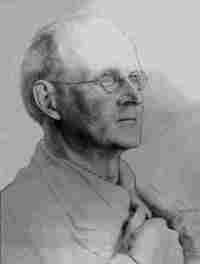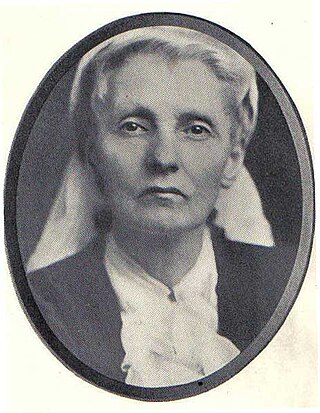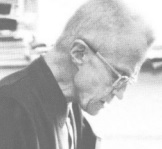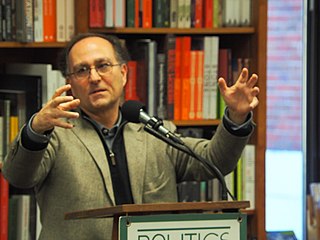Related Research Articles

Hilary Whitehall Putnam was an American philosopher, mathematician, and computer scientist, and a major figure in analytic philosophy in the second half of the 20th century. He made significant contributions to philosophy of mind, philosophy of language, philosophy of mathematics, and philosophy of science. Outside philosophy, Putnam contributed to mathematics and computer science. Together with Martin Davis he developed the Davis–Putnam algorithm for the Boolean satisfiability problem and he helped demonstrate the unsolvability of Hilbert's tenth problem.

Pragmatism is a philosophical tradition that considers words and thought as tools and instruments for prediction, problem solving, and action, and rejects the idea that the function of thought is to describe, represent, or mirror reality. Pragmatists contend that most philosophical topics—such as the nature of knowledge, language, concepts, meaning, belief, and science—are all best viewed in terms of their practical uses and successes.

Richard McKay Rorty was an American philosopher. Educated at the University of Chicago and Yale University, he had strong interests and training in both the history of philosophy and in contemporary analytic philosophy. Rorty had a long and diverse academic career, including positions as Stuart Professor of Philosophy at Princeton University, Kenan Professor of Humanities at the University of Virginia, and Professor of Comparative literature at Stanford University. Among his most influential books are Philosophy and the Mirror of Nature (1979), Consequences of Pragmatism (1982), and Contingency, Irony, and Solidarity (1989).
Frank Plumpton Ramsey was a British philosopher, mathematician, and economist who made major contributions to all three fields before his death at the age of 26. He was a close friend of Ludwig Wittgenstein and, as an undergraduate, translated Wittgenstein's Tractatus Logico-Philosophicus into English. He was also influential in persuading Wittgenstein to return to philosophy and Cambridge. Like Wittgenstein, he was a member of the Cambridge Apostles, the secret intellectual society, from 1921.

"Pragmaticism" is a term used by Charles Sanders Peirce for his pragmatic philosophy starting in 1905, in order to distance himself and it from pragmatism, the original name, which had been used in a manner he did not approve of in the "literary journals". Peirce in 1905 announced his coinage "pragmaticism", saying that it was "ugly enough to be safe from kidnappers". Today, outside of philosophy, "pragmatism" is often taken to refer to a compromise of aims or principles, even a ruthless search for mercenary advantage. Peirce gave other or more specific reasons for the distinction in a surviving draft letter that year and in later writings. Peirce's pragmatism, that is, pragmaticism, differed in Peirce's view from other pragmatisms by its commitments to the spirit of strict logic, the immutability of truth, the reality of infinity, and the difference between (1) actively willing to control thought, to doubt, to weigh reasons, and (2) willing not to exert the will, willing to believe. In his view his pragmatism is, strictly speaking, not itself a whole philosophy, but instead a general method for the clarification of ideas. He first publicly formulated his pragmatism as an aspect of scientific logic along with principles of statistics and modes of inference in his "Illustrations of the Logic of Science" series of articles in 1877-8.
Susan Haack is a distinguished professor in the humanities, Cooper Senior Scholar in Arts and Sciences, professor of philosophy, and professor of law at the University of Miami in Coral Gables, Florida.
Clarence Irving Lewis, usually cited as C. I. Lewis, was an American academic philosopher. He is considered the progenitor of modern modal logic and the founder of conceptual pragmatism. First a noted logician, he later branched into epistemology, and during the last 20 years of his life, he wrote much on ethics. The New York Times memorialized him as "a leading authority on symbolic logic and on the philosophic concepts of knowledge and value." He was the first to coin the term "Qualia" as it is used today in philosophy, linguistics, and cognitive sciences.

Charles Kay Ogden was an English linguist, philosopher, and writer. Described as a polymath but also an eccentric and outsider, he took part in many ventures related to literature, politics, the arts, and philosophy, having a broad effect particularly as an editor, translator, and activist on behalf of a reformed version of the English language. He is typically defined as a linguistic psychologist, and is now mostly remembered as the inventor and propagator of Basic English.

Gertrude Elizabeth Margaret Anscombe, usually cited as G. E. M. Anscombe or Elizabeth Anscombe, was a British analytic philosopher. She wrote on the philosophy of mind, philosophy of action, philosophical logic, philosophy of language, and ethics. She was a prominent figure of analytical Thomism, a Fellow of Somerville College, Oxford and Professor of Philosophy at the University of Cambridge.
A pragmatic theory of truth is a theory of truth within the philosophies of pragmatism and pragmaticism. Pragmatic theories of truth were first posited by Charles Sanders Peirce, William James, and John Dewey. The common features of these theories are a reliance on the pragmatic maxim as a means of clarifying the meanings of difficult concepts such as truth; and an emphasis on the fact that belief, certainty, knowledge, or truth is the result of an inquiry.

Victoria, Lady Welby, more correctly Lady Welby-Gregory, was a self-educated British philosopher of language, musician and watercolourist.
Neopragmatism, sometimes called post-Deweyan pragmatism, linguistic pragmatism, or analytic pragmatism, is the philosophical tradition that infers that the meaning of words is a result of how they are used, rather than the objects they represent.

Richard Bevan Braithwaite was an English philosopher who specialized in the philosophy of science, ethics, and the philosophy of religion.

This Charles Sanders Peirce bibliography consolidates numerous references to the writings of Charles Sanders Peirce, including letters, manuscripts, publications, and Nachlass. For an extensive chronological list of Peirce's works, see the Chronologische Übersicht on the Schriften (Writings) page for Charles Sanders Peirce.

Rush Rhees was an American philosopher. He is principally known as a student, friend, and literary executor of the philosopher Ludwig Wittgenstein. With G. E. M. Anscombe he was co-editor of Wittgenstein's posthumous Philosophical Investigations (1953), and, with Anscombe and G. H. von Wright, he co-edited Wittgenstein's Remarks on the Foundations of Mathematics (1956). He was solely responsible for the editing of Philosophical Grammar (1974) and Philosophical Remarks (1975). Rhees taught philosophy at Swansea University from 1940 until 1966, when he took early retirement to devote more time to editing Wittgenstein's works.
Isaac Levi was an American philosopher who served as the John Dewey Professor of Philosophy at Columbia University. He is noted for his work in epistemology and decision theory.
Neurath's boat is a simile used in anti-foundational accounts of knowledge, especially in the philosophy of science. It was first formulated by Otto Neurath. It is based in part on the Ship of Theseus which, however, is standardly used to illustrate other philosophical questions, to do with problems of identity. It was popularised by Willard Van Orman Quine in Word and Object (1960).

Robert B. Talisse is an American philosopher and political theorist. He is currently Professor of Philosophy and Chair of the Philosophy Department at Vanderbilt University in Nashville, Tennessee, where he is also a Professor of Political Science. Talisse is a former editor of the academic journal Public Affairs Quarterly, and a regular contributor to the blog 3 Quarks Daily, where he posts a monthly column with his frequent co-author and fellow Vanderbilt philosopher Scott Aikin. He earned his PhD in Philosophy from the City University of New York in 2001. His principal area of research is political philosophy, with an emphasis on democratic theory and liberalism.

Pragmatic ethics is a theory of normative philosophical ethics and meta-ethics. Ethical pragmatists such as John Dewey believe that some societies have progressed morally in much the way they have attained progress in science. Scientists can pursue inquiry into the truth of a hypothesis and accept the hypothesis, in the sense that they act as though the hypothesis were true; nonetheless, they think that future generations can advance science, and thus future generations can refine or replace their accepted hypotheses. Similarly, ethical pragmatists think that norms, principles, and moral criteria are likely to be improved as a result of inquiry.
David Macarthur is an Australian philosopher and Professor of Philosophy at the University of Sydney who works primarily on skepticism, metaphysical quietism, pragmatism, liberal naturalism and philosophy of art. He has taken up these and other themes in articles on the philosophy of Stanley Cavell, Hilary Putnam, Richard Rorty and Ludwig Wittgenstein.
References
- ↑ "Pragmatic philosophers: let's just focus on 'the best we can do'". CBC Radio. April 7, 2020. Archived from the original on August 18, 2020.
- 1 2 "Cheryl Misak". University of Toronto. Archived from the original on August 9, 2020.
- ↑ "Cheryl Misak". Universities Canada. Archived from the original on August 9, 2018. Retrieved October 11, 2020.
- ↑ Misak, Cheryl (2011). "2011 Presidential Address: American Pragmatism and Indispensability Arguments". Transactions of the Charles S. Peirce Society. 47 (3): 261. doi:10.2979/trancharpeirsoc.47.3.261. S2CID 170361561.
- ↑ "Welcoming Interim Director Cheryl Misak". Munk School of Global Affairs and Public Policy. December 17, 2020. Archived from the original on December 25, 2020. Retrieved January 13, 2021.
- ↑ Kenney, Trevor (January 14, 2009). "Athletics helped shape Misak's future". University of Lethbridge. Archived from the original on October 11, 2020. Retrieved October 11, 2020.
- ↑ Margolis, Joseph (December 24, 2013). "Some Remarks on Cheryl Misak's The American Pragmatists". European Journal of Pragmatism and American Philosophy. 5 (2). doi: 10.4000/ejpap.548 . ISSN 2036-4091.
- ↑ de Waal, Cornelis (2019). "Cambridge Pragmatism: From Peirce and James to Ramsey and Wittgenstein by Cheryl Misak". Journal of the History of Philosophy . 57 (3): 565–566. doi:10.1353/hph.2019.0047. ISSN 1538-4586.
- ↑ Preston, John (October 2017). "Review of Cambridge Pragmatism". Philosophical Investigations . 40 (4): 443–448. doi:10.1111/phin.12171.
- ↑ Capps, John (March 16, 2017). "Cheryl Misak, Cambridge Pragmatism: From Peirce and James to Ramsey and Wittgenstein". Journal for the History of Analytical Philosophy. 5 (3). doi: 10.15173/jhap.v5i3.3156 . ISSN 2159-0303. Archived from the original on June 8, 2018. Retrieved October 11, 2020.
- ↑ Gottlieb, Anthony (April 27, 2020). "The Man Who Thought Too Fast". The New Yorker . Archived from the original on September 8, 2020. Retrieved October 11, 2020.
- ↑ Brean, Joseph (June 6, 2020). "The Philosopher Kings: How friendship with young prodigy changed one of the most brilliant minds of modern thinking". National Post . Archived from the original on October 11, 2020. Retrieved October 11, 2020.
- ↑ Davenport-Hines, Richard (March 27, 2020). "'Frank Ramsey' Review: The Most Genial Genius". The Wall Street Journal . ISSN 0099-9660. Archived from the original on April 6, 2020. Retrieved October 11, 2020.